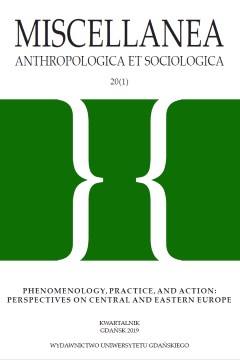Repository | Journal | Volume | Article
Praxis, the body, and solidarity
some reflections on the Marxist readings of phenomenology in Poland (1945-1989)
pp. 178-195
Abstract
The article presents main tendencies in the reception of phenomenology in the light of Marxism in Poland in the post-war period. As it is argued, although phenomenology was marginalized and even refused from the Marxist position, a dialogue between both traditions established interesting developments, especially with regard to the problem of the body, and constitution of solidarity as a social phenomenon. The main thesis of the study is that the confrontation with Marxism enabled phenomenologists a problematization of the phenomenon of work as a specific way of being. The article is divided into three parts. First, the author defines main ideological points of the Marxist critique of phenomenology, i.e., a critique of phenomenology as a bourgeois philosophy that cannot offer anything to the communist society since it abandons the sphere of praxis. Next, positive developments of the phenomenological method are to be reconstructed; moreover, the author analyzes Szewczyk’s original reading of Husserl, and his analysis of experience of the body. Finally, the article points out a Marxist background of some thoughts of Wojtyła and Tischner, including Tischner’s ethics of solidarity, and Wojtyła’s emphasis on human dignity.
Publication details
Published in:
Płotka Witold (2019) Phenomenology, practice, and action. Miscellanea Anthropologica et Sociologica 20 (1).
Pages: 178-195
Full citation:
Płotka Witold (2019) „Praxis, the body, and solidarity: some reflections on the Marxist readings of phenomenology in Poland (1945-1989)“. Miscellanea Anthropologica et Sociologica 20 (1), 178–195.




